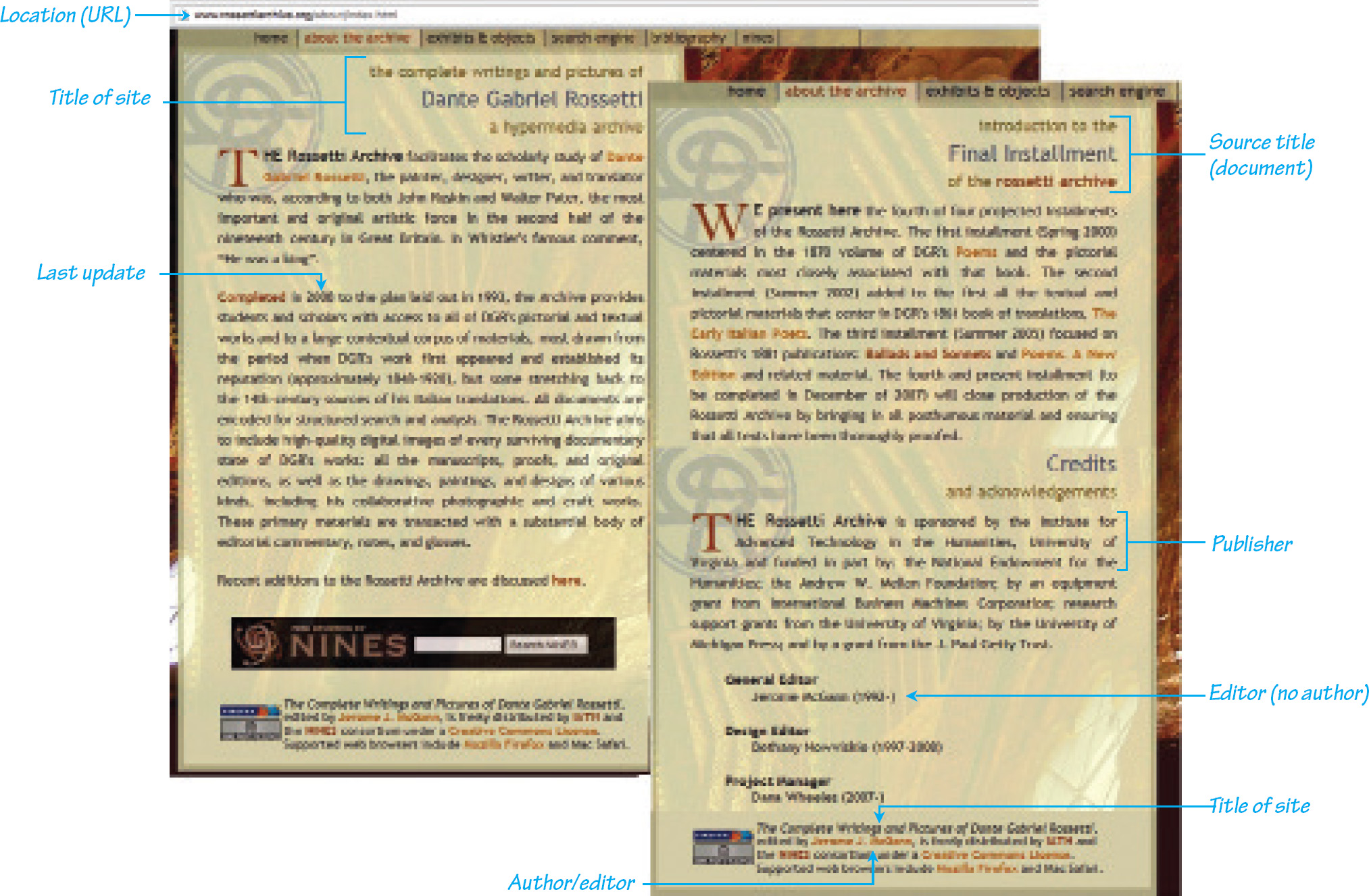Other Electronic Sources
For help evaluating online sources, see Chapter 22.
Online sources have proliferated in the last ten years. With that proliferation has come access to more information than ever before. But not all of that information is of equal value. Before including a source found on Google in your research project, be sure that it is appropriate for a college-
If you are using the online version of a source for which there is no model shown here, choose the model that best matches your source and add any other information that readers will need to find the source themselves. If an online source does not include a publication date or information about its latest update, provide the date you accessed it at the end of your entry. Separate access information from source information with a period.
Web page or other document on a Web site

Figure 24.3 shows where to find the source information you will need to create a works-

663
Entire Web site or online scholarly project If the author’s name is not given, begin the citation with the title.

664
Book or a short work in an online scholarly project Treat a book or a short work in an online scholarly project as you would a Web page or another document on a Web site, but set the title in italics if the work is a book and in quotation marks if it is an article, essay, poem, or other short work, and include the print publication information (if relevant to your particular use) following the title.
![]()

Blog Cite an entire blog as you would an entire Web site. If the author of the blog or blog post uses a pseudonym, use this in place of that author’s real name. If you know the author’s real name, include it in parentheses following the pseudonym (or handle).

Wiki article Since wikis are written and edited collectively, start your entry with the title of the article you are citing. But check with your instructor before using information from a wiki in your research project; because content is written and edited collectively, it is difficult to assess its reliability and impossible to determine the expertise of the contributers. Some wikis, such as Wikipedia, offer unique permalinks for each updated version of every article (click on “Permanent link” under “Tools” in the menu). If you cannot locate a unique permalink for the version you’re citing, include your access date.
![]()
Discussion group or newsgroup posting Use the subject line of the posting (in quotation marks) as the title, and include the name of the discussion or newsgroup.

E-
![]()